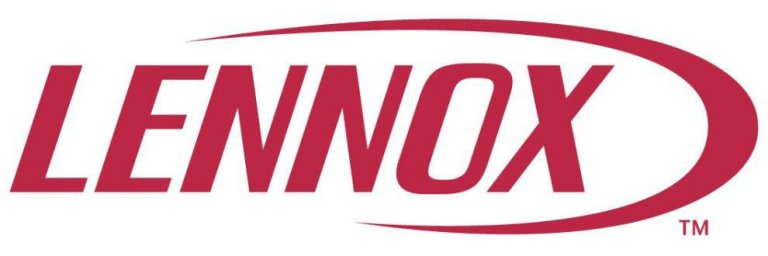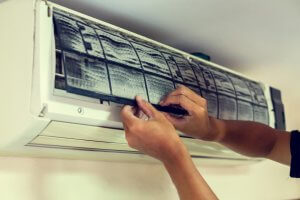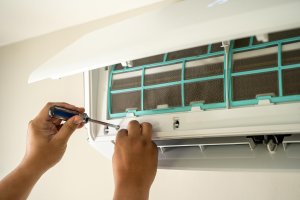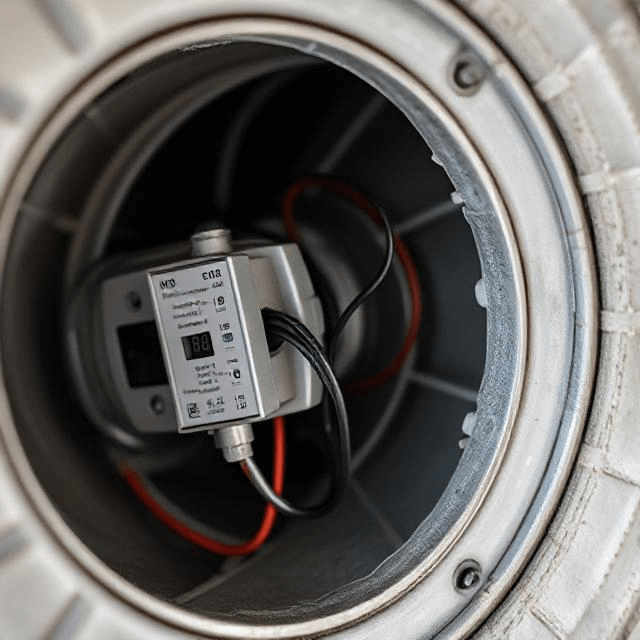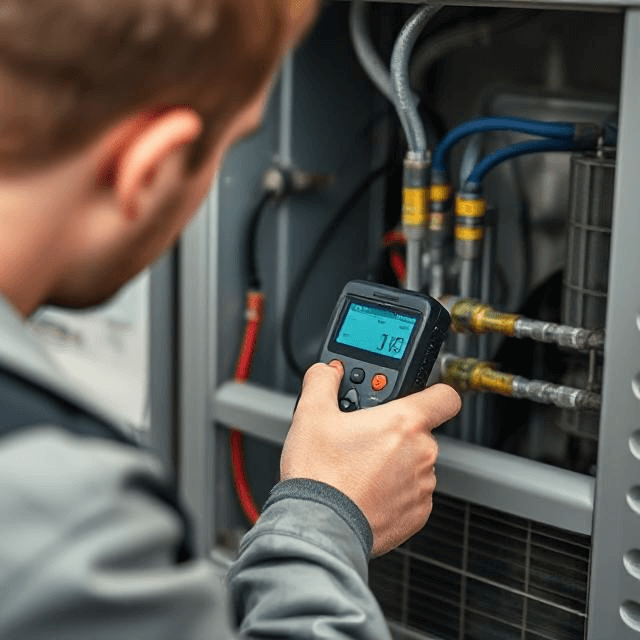When navigating the world of HVAC systems, you’ll frequently encounter two acronyms: SEER and AFUE. These ratings indicate how energy-efficient an HVAC system is.
In this post by Season Control, we will discuss what each of these terms means and why they matter.
What is SEER?
SEER stands for Seasonal Energy Efficiency Ratio.
This rating indicates how efficiently the unit converts electricity into cooling power over a cooling season. It is determined by dividing the cooling output in a regular cooling season by the total electric energy input during the same period.
The higher the SEER rating, the more energy-efficient the air conditioner is. In simpler terms, a higher SEER means lower energy bills for the same amount of cooling.
Why Does SEER Matter?
- Lower Energy Bills: Systems with high SEER ratings use electricity more efficiently, lowering energy costs.
- Environmental Benefits: Reduced electricity consumption means less strain on the power grid and lower greenhouse gas emissions.
- Advanced Technology: High SEER units often include modern features that improve comfort and reliability.
- Improved Home Comfort: Features like variable speed compressors maintain consistent temperatures and better humidity control.
- Rebates and Incentives: Utility companies often offer rebates for installing high-efficiency systems, helping offset initial costs.
- Future-Proofing: Meeting or exceeding current efficiency standards keeps your home compliant with potential future regulations.
- Increased Home Value: Homes with energy-efficient systems are more attractive to buyers, potentially increasing resale value.
What is AFUE?
AFUE stands for Annual Fuel Utilization Efficiency.
The AFUE rating measures a furnace or boiler’s performance. It indicates how well it converts fuel to heat over a typical year.
Expressed in percentages, an AFUE rating tells you how much of your fuel is used for warming your home and how much is wasted. For instance, a furnace with an AFUE rating of 90% converts 90% of the fuel to heat, while the remaining 10% escapes and is wasted.
Why Does AFUE Matter?
- Energy Cost Savings: A higher AFUE rating means more of your fuel contributes to actual heating. This efficiency translates to lower heating bills, especially during the colder months.
- Environmental Conservation: By maximizing the amount of heat generated from each energy unit, high AFUE-rated systems minimize waste and reduce the overall consumption of fossil fuels. This leads to fewer carbon emissions and a smaller environmental footprint.
- Quality and Comfort: Systems with high AFUE ratings have advanced technology that enhances overall comfort. This can include better temperature control, quieter operation, and improved air quality.
- Incentives and Rebates: Many energy companies and government agencies offer incentives for installing high-efficiency heating systems. A furnace or boiler with a high AFUE rating might qualify for these financial benefits, offsetting the initial investment cost.
- Regulatory Compliance: AFUE requirements are subject to regulations varying by location. Investing in a high-efficiency system ensures compliance with current standards. It prepares you for any future increases in efficiency requirements.
- Home Value: A high AFUE rating is a critical feature that can enhance the marketability of your property, potentially leading to a higher resale value.
How to Choose the Right HVAC System
When selecting an HVAC system, consider both SEER and AFUE ratings in the context of your specific needs and the climate you live in.
Here are a few tips:
- Focus on a high SEER rating for your air conditioning system if cooling is your primary concern.
- Look for a furnace or boiler with a high AFUE rating to ensure efficient heating during the long winter months.
- Larger homes may need systems with higher capacity, which could affect the efficiency ratings you should look for.
- Complex layouts may benefit from systems that support zoning, like certain high-SEER and high-AFUE models.
- Determine how much you want to save on your energy bills. Higher SEER and AFUE ratings usually lead to greater savings over time.
- Ensure any system you consider meets or exceeds local and national efficiency standards.
- Consider the manufacturer’s reputation for reliability and the system’s expected lifespan. A system that lasts longer and requires less maintenance adds more value.
Consult with Professionals
Consult with an HVAC professional when selecting the right system for your home. They bring expertise to assess your needs, offering customized solutions that balance cost with efficiency.
Professionals can guide you on rebates, ensure proper installation for optimal performance, and provide maintenance tips.
Their knowledge ensures your system is efficient and compliant with current regulations, making their advice invaluable in enhancing your home’s comfort and energy efficiency.
Maximize Comfort and Efficiency
Understanding SEER and AFUE ratings is crucial when shopping for an energy-efficient HVAC system. Choosing a unit with high ratings contributes to a healthier planet by reducing your carbon footprint.
Remember, the most efficient system meets your needs while being as energy-efficient as possible.
If you need assistance, feel free to contact Season Control HVAC. Our professionals can help you find and maintain the perfect system for your home.
